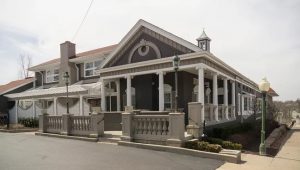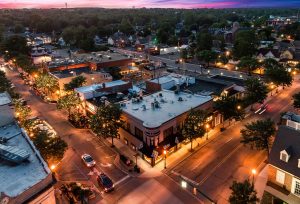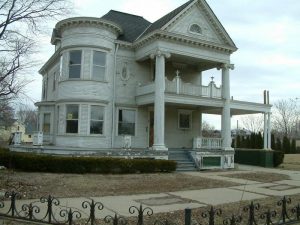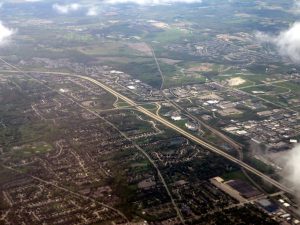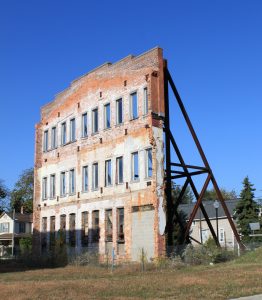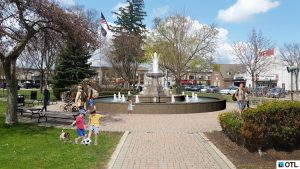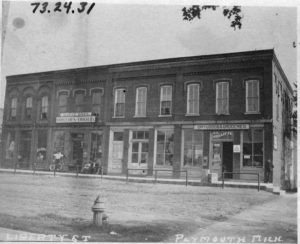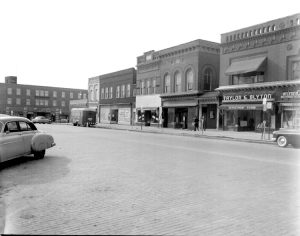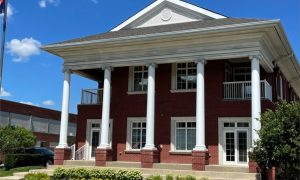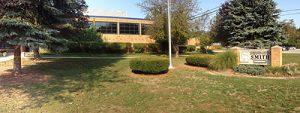Plymouth, Michigan
Plymouth is a city in Wayne County, Michigan, United States. The population was 9,370 at the 2020 census. The city of Plymouth is surrounded by Plymouth Township, but the two are administered autonomously. Plymouth is a western suburb of Metro Detroit and is located about 10 miles west of the city of Detroit.
According to the United States Census Bureau, the city has a total area of 2.22 square miles, of which 2.21 square miles is land and 0.01 square miles is water. It is located 15.6 miles east of Ann Arbor and 26.3 miles west of Detroit, just south of the M-14 highway and west of Interstate 275.
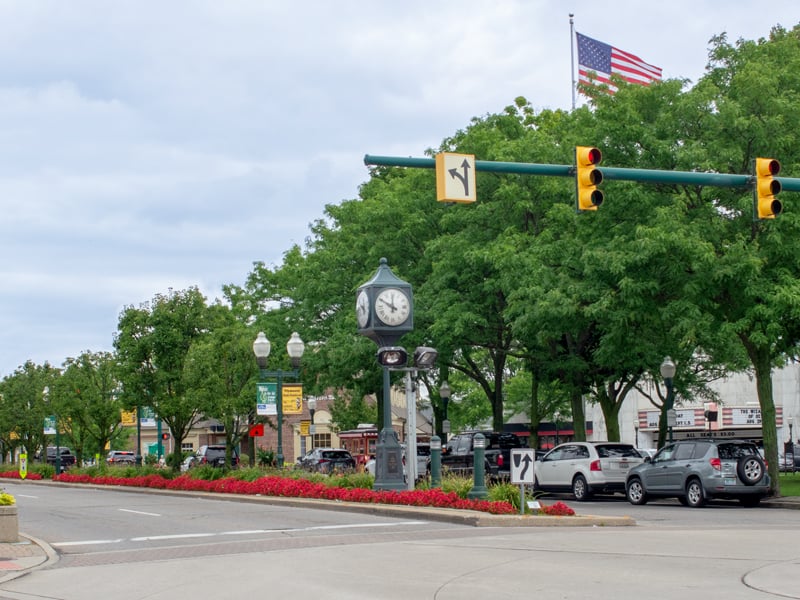
Discover the Community
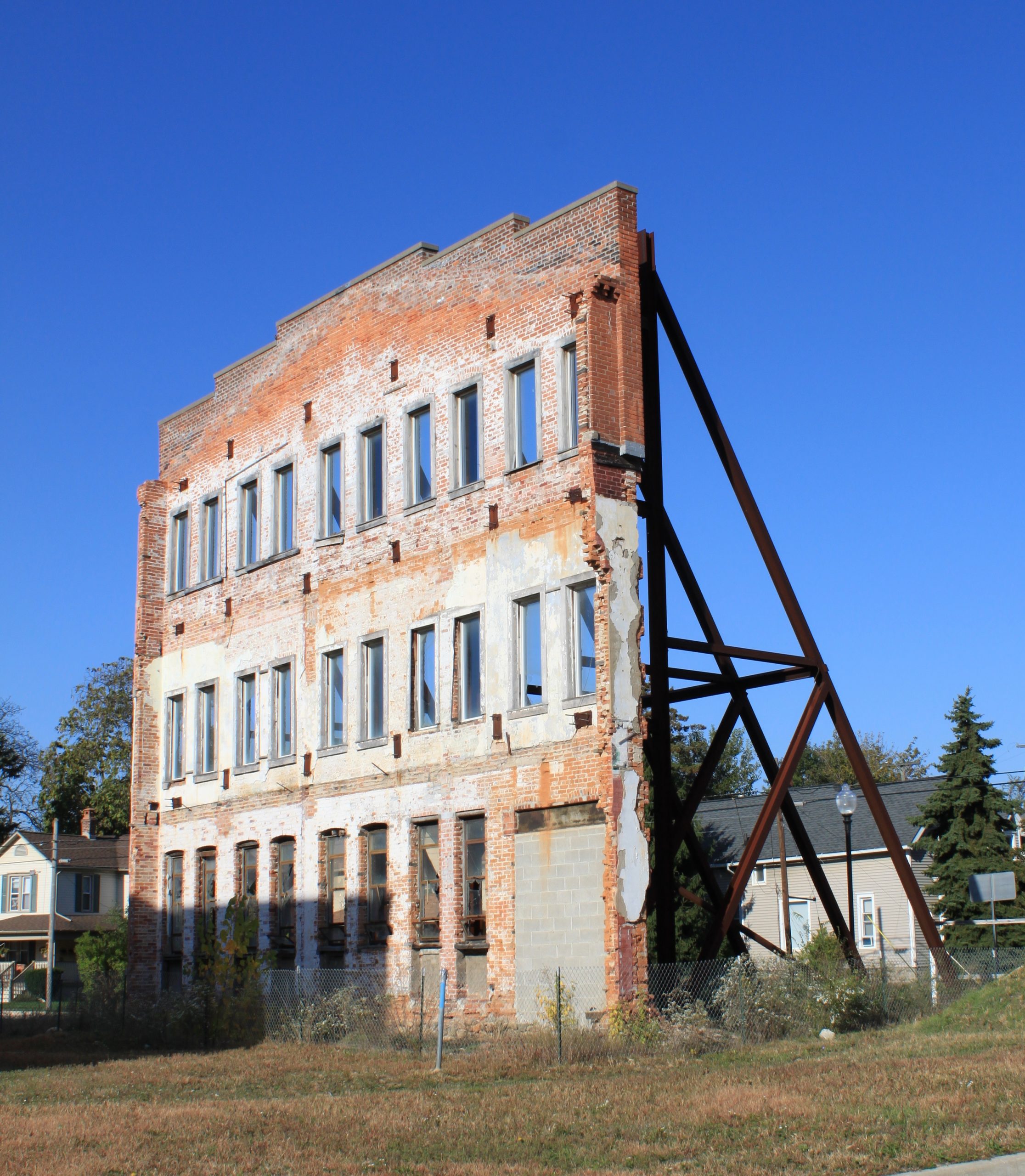
History
Plymouth was first settled in 1825, incorporated as a village in 1867, and became a city in 1932.
Foundation
In 1825, Luther Lincoln was granted two land patents in what is now Plymouth by the federal government. Lincoln built his place of business, his sawmill, and abode, near the eastern boundary of his land, along the Rouge River. His actual abode and sawmill was always outside the city limits. Another early settler was William Starkweather. William and his wife Keziah brought their firstborn son Albert to the area and built the first home in Plymouth, at what is now the southwest corner of Main Street and Ann Arbor Trail. The first home was a lean-to, and was later replaced by a log cabin, which has since been destroyed.
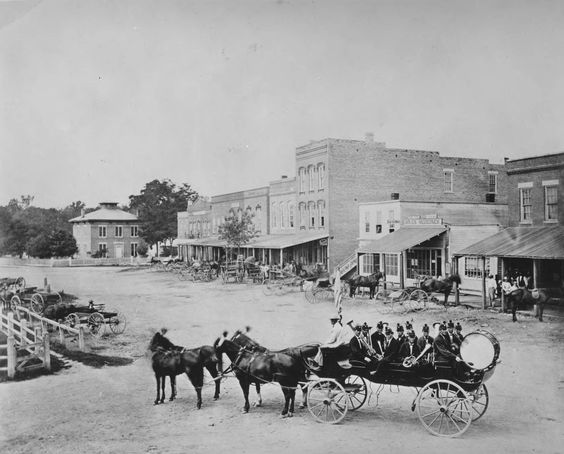
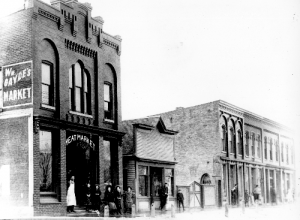
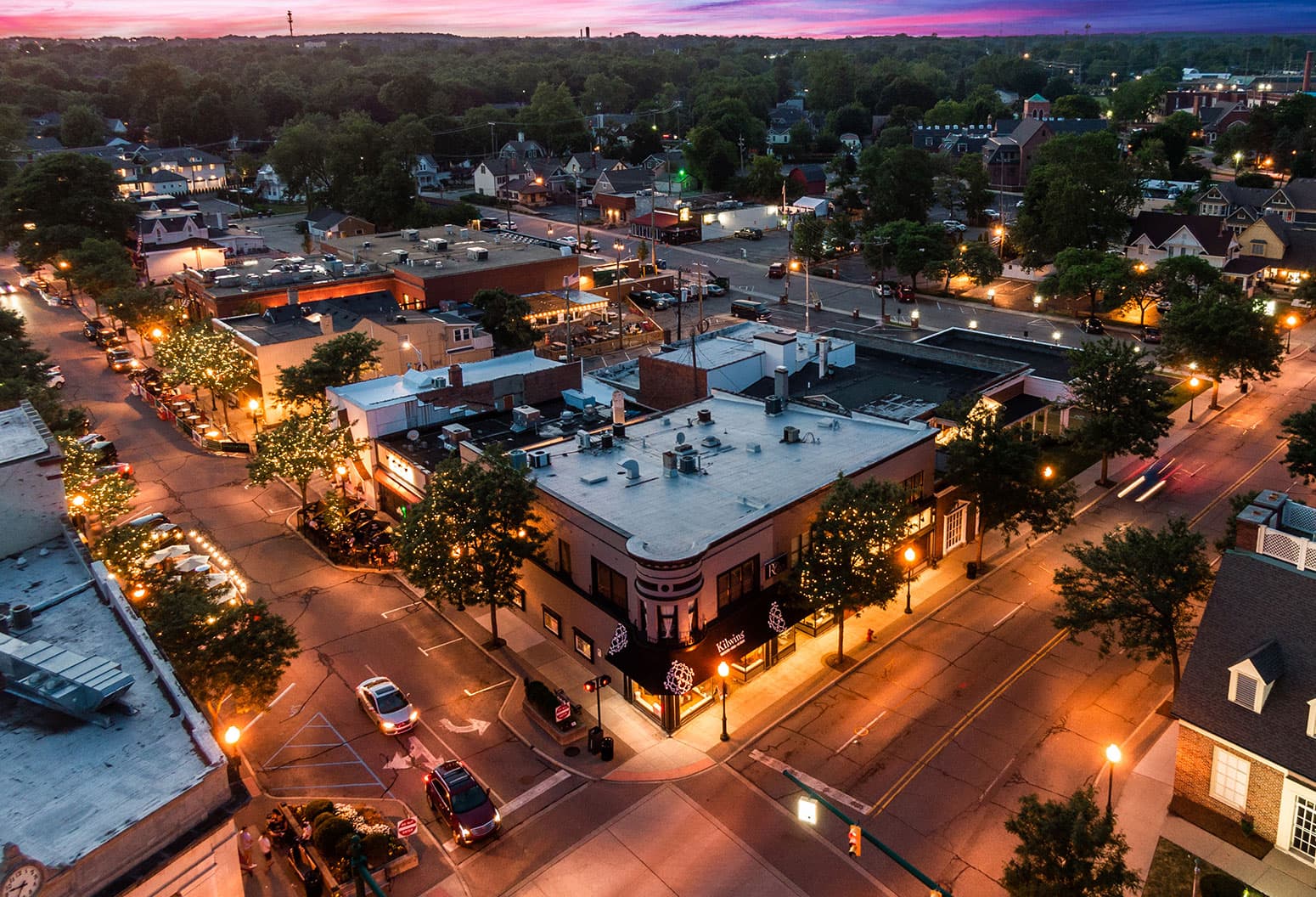
Growth
In 1831, William Starkweather sold his land in downtown Plymouth and in 1831 purchased an 80-acre (320,000 m2) parcel of land in what was then called "North Village" (now called "The Historic Old Village"). In 1844, William died and the land in Old Village was then passed to William's son, George A Starkweather. George felt that the railroad coming to North Village would give it a commercial advantage over the Kellogg Park area. In the 1860s, he convinced the Detroit and Howell Railroad Company to build through the town. Starkweather was responsible for cutting Oak Street North through his farm in order to reach his new store and the train station. After his death in 1907, Oak Street was renamed Starkweather in his honor.
Notable streets in Plymouth are named after some Starkweather family members, including Blanche (after Blanche Starkweather, daughter of George Starkweather), Karmada (after the grandchildren of George Starkweather – Karl, Max and Davis), Davis – after Davis B Hillmer – youngest grandson of George Starkweather, Starkweather (formerly Oak Street), Amelia (after Lydia Amelia Heywood – Davis - Starkweather) – George Starkweather's wife, and Rose – after Rose Hillmer, eldest granddaughter of George Starkweather. Starkweather Elementary School was named after George Anson Starkweather of Plymouth, which was converted to an adult education center.
Daisy Manufacturing Company, now Daisy Outdoor Products, started in 1882 in Plymouth as the Plymouth Iron Windmill Company. In 1886 Plymouth inventor Clarence Hamilton introduced a new idea to the windmill company. It was a combination of metal and wire, vaguely resembling a gun that could fire a lead ball using compressed air. Lewis Cass Hough, then president of the firm, gave it a try and, after his first shot, enthusiastically exclaimed, "Boy, that's a daisy!" The name stuck, and the BB gun went into production as a premium item given to farmers when they purchased a windmill. The gun was such a huge success that Plymouth Iron Windmill soon began manufacturing the Daisy BB gun in place of windmills. On January 26, 1895, the company's board of directors officially voted to change the name to Daisy Manufacturing Company, Inc.


Culture
The City of Plymouth has a variety of shops and restaurants surrounding Kellogg Park, the de facto center of town. The Inn at St. John's, a hotel conference center and golf resort, is located in Plymouth. The city offers more than fifty recreation programs for all age groups, an NHL-size ice arena (used by the USA national teams for training) and twelve parks. It also organizes major community events such as the popular Fall Festival, Ice Sculpture Spectacular and the Art in the Park, and access to the Plymouth-Canton school district, with a unique complex composed of three high schools located on one 305-acre campus and is now one of the highest populated high school campuses in the country (nicknamed “the park”) with close to 6500 students and over 800 faculty members.
The Plymouth Ice Spectacular, the largest and oldest ice carving festival in North America, is held every year in Plymouth in late January. Founded in 1982 by then 25-year-old Scott Lorenz, the weekend-long event draws an average of 500,000 people to Plymouth each year and has helped establish ice carving as a world-class competitive event.
Since 2008, Plymouth has been home to the Green Street Fair, held over a weekend each May. Featuring green-themed exhibitors and activities, the event has become a yearly tradition. In 2011, the event was attended by about 90,000 visitors.
Plymouth's "Art in the Park" is Michigan's second largest art fair. Visitors have enjoyed Plymouth Art in the Park since its inaugural event in 1980. Plymouth Art in the Park, founded, directed and managed by mother and daughter team Dianne Quinn and Raychel Rork, celebrated its 33rd show in 2012. The event hosts over 450 artists and 300,000 attendees each year.
Another very popular community tradition/event is Plymouth's Fall Festival. This annual event is held the weekend after Labor Day. The Fall Festival is an event for all ages with numerous rides and other attractions.
Other events include Plymouth's "Music in the Air", held every Friday night June through September, beginning at approximately 7:00 pm, showcasing a number of bands performing a wide variety of music. The Historic Old Village hosts events such as "Bumpers Bikes and Bands", the "Old Village Restaurant Crawl", and the family-friendly "Haunted Halloween" on Liberty Street. The Old Village is located on Plymouth's north side and borders Hines Park.
Plymouth Rocks!
The Plymouth community is made up of the City of Plymouth and Plymouth Township. Together they create a tremendous quality of life or, as we say, "PLYMOUTH ROCKS". What is special about this area is the sense of community that can be seen in beautiful neighborhoods, spacious parks, and a vibrant downtown with a variety of shops and restaurants that surround a park.
Come take a fast paced 30-second tour of the Plymouth Community to see why we say "Plymouth Rocks".
Plymouth Abounds with Arts, Entertainment and Recreation
Visitors find Plymouth a fantastic place to visit because there is always something fun to do. Art, history, entertainment, golf, or outdoor activities are all part of what makes every day in Plymouth a great adventure.
Come take a fast paced 3-minute tour of the Plymouth Community to see why we say "Plymouth Rocks". Plymouth combines a high-tech business base with a high quality of life. The video includes interviews with locals who will share with you why Plymouth is a wonderful place to visit, live and work.
Teaching & Learning
The Plymouth-Canton Community Schools is committed to ensuring all students meet and exceed rigorous academic standards through a comprehensive, relevant curriculum; high quality instruction; and the use of appropriate formative and summative assessments to inform students, parents, and staff about student progress.
The district provides educational experiences to help all students go beyond the Michigan Academic Standards as well as the College Board standards. To support all students' efforts to meet and exceed these standards, the district delivers an educational program designed to prepare students for a post-secondary experience on their way to pursuing a fulfilling career of their choice.
Classroom instruction centers on providing students with what they must have to perform at their highest level of ability all of the time. Through high quality direct instruction, all students are challenged to maximize their performance, and those with specific learning needs are provided the support necessary to meet the same high expectations established within an inclusive environment.
The district is committed to supporting the academic, social, and emotional needs of all students through the use of a multi-tiered system of supports implemented in each classroom. We utilize culturally responsive pedagogy as we provide students with what is essential to be successful. In addition, technology is integrated in the classroom to help students deepen learning and promote innovation and creativity.
P-CCS strives to help all students Learn, Prepare, and Thrive with the skills necessary to succeed today and well into the future.
P-CCS
By The Numbers








